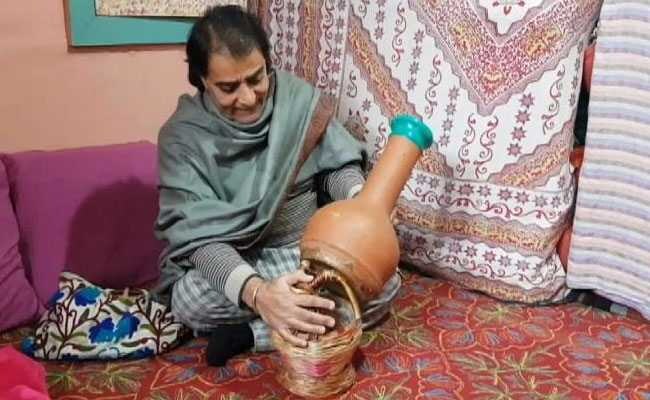
Abdul Rashid alias Reshma has emerged as a role model for her community in Kashmir.
Srinagar:
The transgender community in Kashmir is struggling for an identity, according to the first ethnographic study done on the community in the valley.
There is not a single graveyard for the transgenders in Kashmir and they say they do not feel welcome in the places of worship. A transgender from Srinagar, Babloo, says, "Recently, when we cleaned a mosque, some people said they will not worship there because transgenders cleaned it. We feel as if we are not human beings when people behave with us like that."
Another transgender, Shabnum, recalls, "An elderly person from our community died a few years back in downtown Fateh Kadal near a shop. People gathered and police came, but nobody knows where he was buried or if he was taken to a mortuary. There are no graveyards for transgenders, and it is a big issue. The government and the locals must think about it."
However, Abdul Rashid alias Reshma, who is constantly working to unite the transgender community in the valley and encouraging them to dream big, has gradually emerged as a role model in the valley.
"The way I sing and dance, I want others should try and become self-reliant. Our community has to work hard for that," Reshma says.
Albeit Islam, the religion followed by the majority of people in Kashmir, ensures rights for the transgender people, however, discrimination against them in endemic in the society, says the first ethnographic study of valley's transgender people - "Hijras in Kashmir- A marginalised Form of Personhood".
The transgenders, mostly abandoned by their families, have remained confined to the role of playing match-makers, the study further explains.
But a High Court directive to the state government, issued earlier this year in response to a PIL seeking protection of the rights of transgender people, has emerged as a ray of hope.
"We moved a PIL in the High Court and the case is going on, the civil society the politicians and the people who have a say need to come forward and acknowledge that this is a society which is living a substandard life and they are the human beings with worth and dignity and we need to acknowledge that worth and dignity," says Aejaz Bund, who is also the the author of the study. The PIL was moved by Mr Bund, an activist based in the valley, last year.
All that the people in the transgender community, who have no representation in the social economic or political structure of the state, want is the discrimination should end for them to lead a normal life.
There is not a single graveyard for the transgenders in Kashmir and they say they do not feel welcome in the places of worship. A transgender from Srinagar, Babloo, says, "Recently, when we cleaned a mosque, some people said they will not worship there because transgenders cleaned it. We feel as if we are not human beings when people behave with us like that."
Another transgender, Shabnum, recalls, "An elderly person from our community died a few years back in downtown Fateh Kadal near a shop. People gathered and police came, but nobody knows where he was buried or if he was taken to a mortuary. There are no graveyards for transgenders, and it is a big issue. The government and the locals must think about it."
However, Abdul Rashid alias Reshma, who is constantly working to unite the transgender community in the valley and encouraging them to dream big, has gradually emerged as a role model in the valley.
"The way I sing and dance, I want others should try and become self-reliant. Our community has to work hard for that," Reshma says.
Albeit Islam, the religion followed by the majority of people in Kashmir, ensures rights for the transgender people, however, discrimination against them in endemic in the society, says the first ethnographic study of valley's transgender people - "Hijras in Kashmir- A marginalised Form of Personhood".
The transgenders, mostly abandoned by their families, have remained confined to the role of playing match-makers, the study further explains.
But a High Court directive to the state government, issued earlier this year in response to a PIL seeking protection of the rights of transgender people, has emerged as a ray of hope.
"We moved a PIL in the High Court and the case is going on, the civil society the politicians and the people who have a say need to come forward and acknowledge that this is a society which is living a substandard life and they are the human beings with worth and dignity and we need to acknowledge that worth and dignity," says Aejaz Bund, who is also the the author of the study. The PIL was moved by Mr Bund, an activist based in the valley, last year.
All that the people in the transgender community, who have no representation in the social economic or political structure of the state, want is the discrimination should end for them to lead a normal life.
Track Latest News Live on NDTV.com and get news updates from India and around the world

